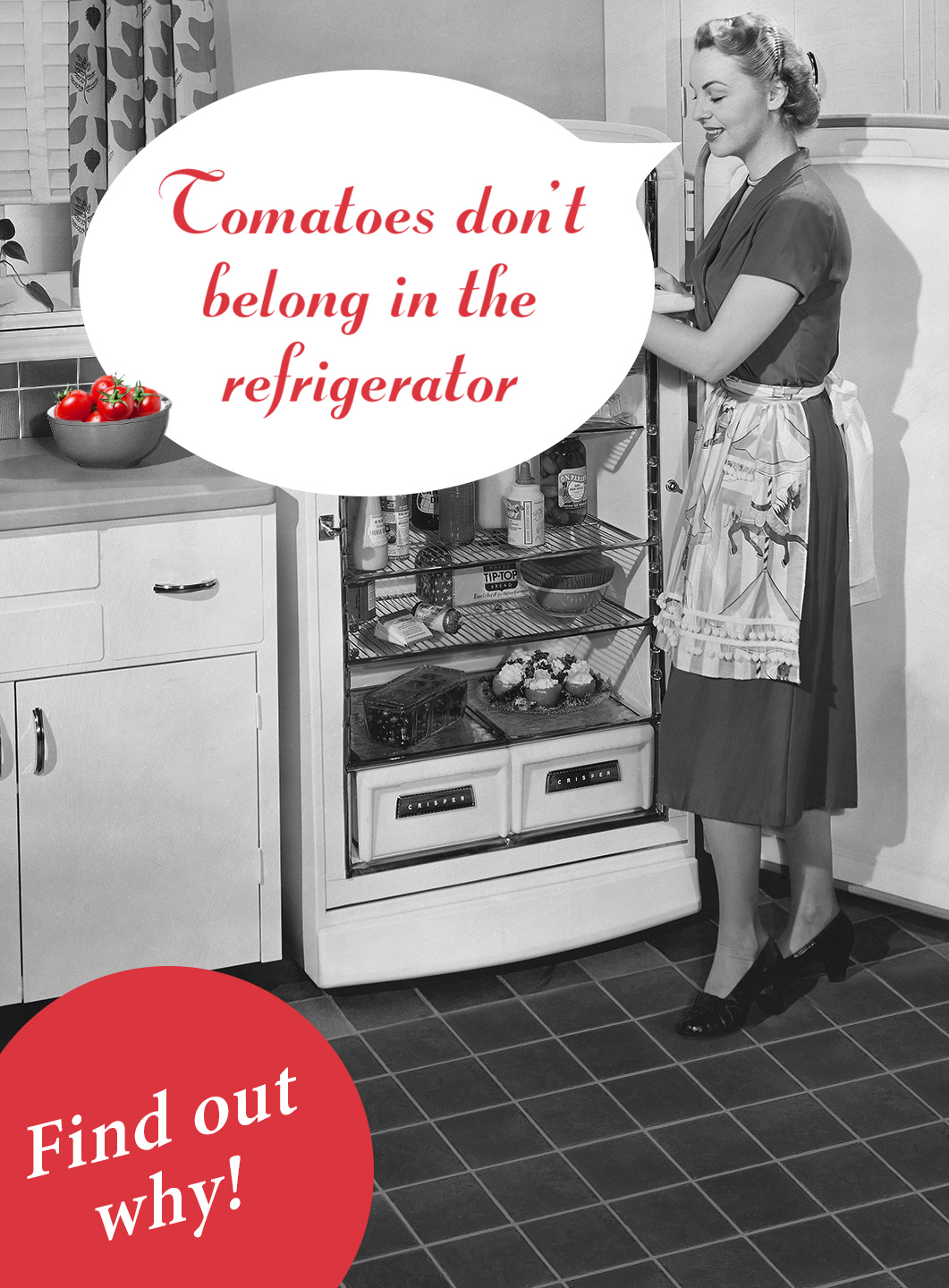Why Don't You Refrigerate Tomatoes?

Most gardeners and cooks know that tomatoes should not be stored in the refrigerator, but they may not know why. The ideal storage temperature for fruits and vegetables varies among the many different varieties. Those fruits native to warmer regions are typically injured by temperatures as low as the common house refrigerator. Their cells begin to malfunction and the uncontained enzyme action damages cell walls, develops undesirable flavors, and causes discoloration. It has been well documented that tomatoes deteriorate when stored below temperatures of 50°F for an extended period of time.
At GardenZeus, we recommend that you store your tomatoes in a cool, dry indoor location at least 60°F, away from direct sunlight and away from sensitive vegetables, as tomato is an ethylene-producing fruit. Stored in these conditions, the amount of time a freshly-harvested tomato lasts ranges from two days for a cherry tomato to over a week for a larger heirloom. Tomatoes should no longer be eaten once black spots and shriveled skins start to appear.
For customized information for growing tomatoes for your area, go to GardenZeus and enter your zip code, then go to tomato. For more information about the effects of ethylene gas on vegetables, see Why is my Lettuce Turning Brown? It’s Probably Ethylene Gas.
Other helpful articles on growing tomatoes:
Yellow Leaves on Tomato Plants: A GardenZeus Guide, Part 1 of 3
GardenZeus Solutions to Common Abiotic Problems with Garden Tomatoes
This is an updated version of an article originally published in March, 2017.